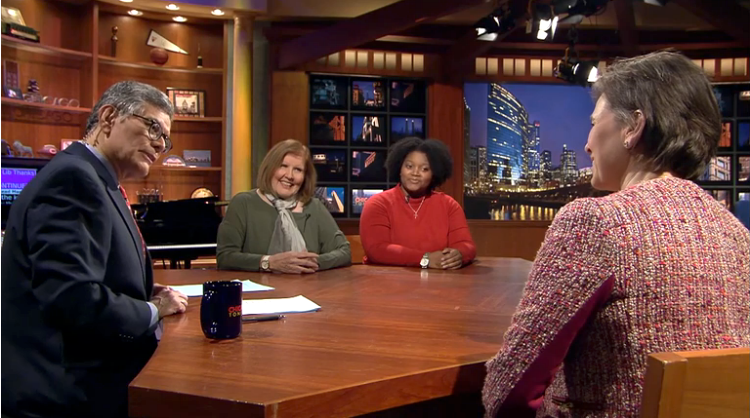In the spirit of “Physician, heal thyself,” Catholic Health World reported on Loyola University Chicago Stritch School of Medicine offering Transcendental Meditation (TM) as an elective course to students during the past 4 years to help them avoid burnout and develop wellness, preparing them to become more effective physicians. The Uncarved Blog originally helped break the news of the early success of this program. Here is a PDF of the Catholic Health World article.
Medical students learn meditation to counter stress, promote physician wellness
October 15, 2018 (Volume 34, Number 18)
By Patricia Corrigan
Loyola University Chicago Stritch School of Medicine is believed to be the first major medical school in the country to offer Transcendental Meditation, or TM, as an elective course. Since 2014, the class has been offered to help medical students manage stress.
“A lot of studies show that as many as 50 percent of medical students and residents exhibit symptoms from stress that can develop into burnout, so we’re trying to help students focus on wellness for themselves by teaching skills that they can take with them, skills they will need to be effective physicians,” said Dr. Gregory Gruener, vice dean for education and a neurology professor at Stritch.
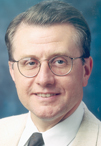
Gruener
In addition to learning the meditation technique, the class reviews the neurophysiology of TM and includes a live demonstration of the brain wave patterns that occur during the practice. Students may attend five lectures over two semesters or view the lectures online. Stritch has even set aside meditation rooms for students.
Gruener counts the TM training as a success. “We don’t push it — it’s one technique — but a significant chunk of the students, about a third of each class, sign up for it, and almost 300 have enrolled since it started.” This year, 66 of the 165 first-year students have signed up so far, and Gruener expects another 10 to 20 to enroll.
Most students who have taken the class have reported the training has “a significant and fundamental impact” on their lives, Gruener said. Danielle Terrell, a resident in pediatric neurosurgery, is one of them.
“Going to medical school — well, that’s not a path to stress relief,” said Terrell. She first took the TM class three years ago and still meditates. “Right after the first meditation class, I instantly felt so much better. The initial benefits are still present, and TM is a great tool to have in my pocket for those days when I am overwhelmed.”
TM uses meditation skills similar to those found in the Catholic, Jesuit traditions of contemplative care. Deans in the admissions offices, the counseling faculty and the clinical physician supervisors at Stritch would agree. They also have learned the meditation technique, which was first taught in India in 1955 and introduced in the U.S. in 1959. An article about the TM class, published in Chicago Medicine magazine in January 2016, is now made available to all students who apply to Stritch.
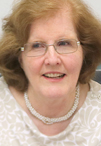
Brown
“Two students told us they chose Loyola because of the TM elective,” said Carla L. Brown, who teaches the course at Stritch. She co-directs the Center for Leadership Performance in Chicago with her husband, Duncan Brown, who also teaches TM at Stritch on an adjunct basis.
“TM changes the brain — that has been documented scientifically,” Carla Brown said. “It taps into our innate capacity to experience restful alertness, and that refines the functioning of our physiology.” The website for the meditation method notes that some 380 published, peer-reviewed research studies have found that TM “markedly reduces stress, anxiety, and fatigue, improves learning ability and promotes balanced functioning of mind and body.”
The medical school is keeping track of whether former students still practice TM. “We haven’t received all the information yet, but even those that are meditating once a day now say they do still notice a benefit,” Gruener said. “Our real concern is how they do away from the support system that was in place for them here, and we will continue to keep in touch.”
Also, as part of a student’s PhD thesis, some faculty members have had MRI scans before and after meditating to determine whether there are changes in the brain that have to do with “anxiety or stress or emotionality.” The study is complete, but Gruener said the data from the thesis is not yet available.

Dr. Danielle Terrell, a resident in pediatric neurosurgery at Louisiana State University — Shreveport, practices stress-busting meditation techniques she learned as a medical student at Loyola University Chicago Stritch School of Medicine.
The TM class includes outside speakers, among them retired Col. Brian Rees, a physician who talks about the use of meditation in his work with individuals in the military related to building resiliency and the treatment of post-traumatic stress disorder. “Students in medical school want to know about the science supporting TM, and they want to meet physicians who research and also practice it,” Gruener said.
The decision to add the meditation technique to the curriculum was serendipitous. “As we were trying to build a broader menu into our wellness program, we heard from a former medical student who had dropped out of school because of anxiety,” Gruener said. “He saw a billboard advertising TM, took the class and found it had a dramatic impact on his life — and he provided the money to begin a pilot program here.”
That program commenced in the fall of 2013. Later, it was modified and the decision was made to offer the course as an elective, with a more flexible schedule. Gruener noted that one reason some students do not enroll is because of the time required to take the five classes and the need to find 20 minutes twice a day to meditate.
“Some students view that as time taken away from studying, even though we try to let them know that if you take care of yourself now, there is a big payback later,” Gruener said. Laughing, he added, “Also, physicians tend to be hardheaded if something isn’t in pill form or can’t be injected. Carla and I have joked that if we had a pill to relieve stress that cost $1,000, all the students would want to take it.”
Gruener said he practices TM, and he openly credits it with reducing his own stress. “You have to embrace wellness and you have to find the time to take control of your own life,” he said. “Once you begin TM, that gets easier.”
# # #
Permission granted by Catholic Health World, October 15, 2018.
Copyright © 2018 by the Catholic Health Association of the United States.
I added all hyperlinks except the SSOM-LUC in the opening sentence.
Article URL: https://www.chausa.org/publications/catholic-health-world/archives/issues/october-15-2018/medical-students-learn-meditation-to-counter-stress-promote-physician-wellness
UPDATE: On January 20 and 27, 2021, Dr Tony Nader, MD, PhD, made presentations at LOYOLA University Chicago Stritch School of Medicine via Zoom: 1) Psychiatry Grand Rounds, Loyola University, for medical doctors and health care professionals: Effectiveness of the Transcendental Meditation Technique for Dissolving Stress and Improving Health and 2) The Purpose of Meditation: Physician Wellness through the Transcendental Meditation Technique.
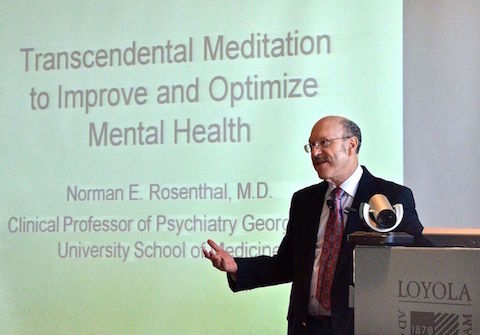
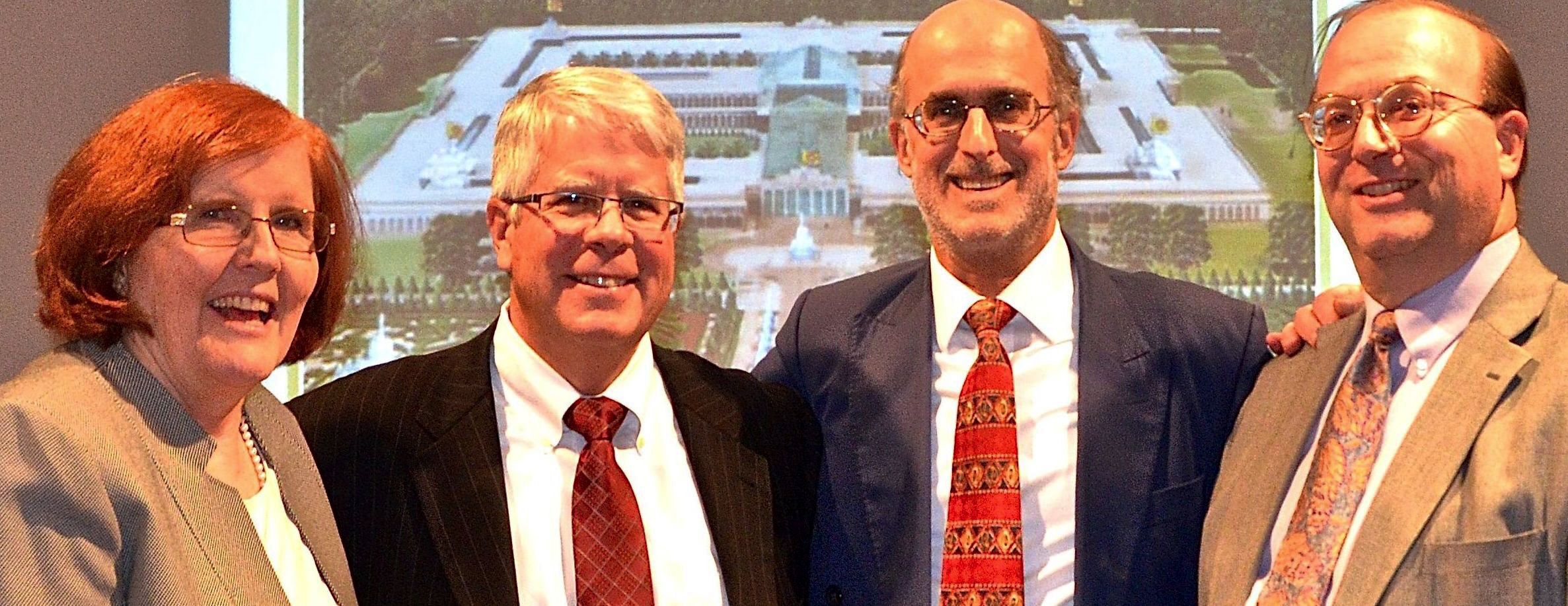
 The second article,
The second article, 